Biochemist Prof. Carl Neuberg
Restituted Books from his Library
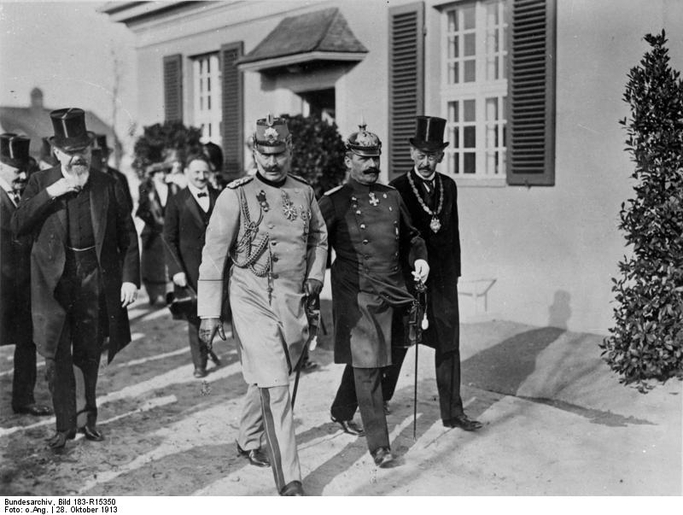
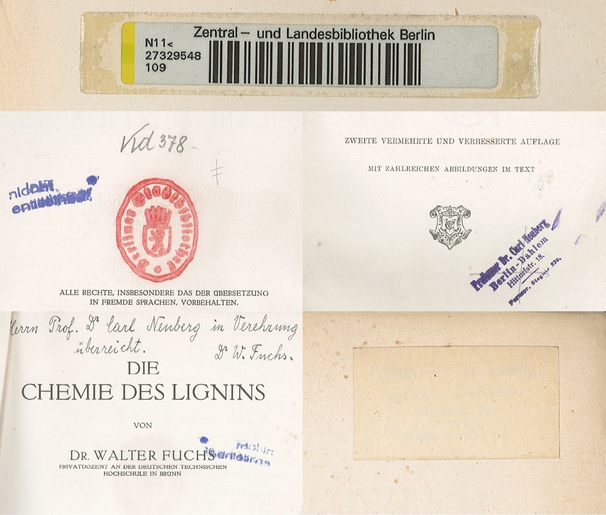
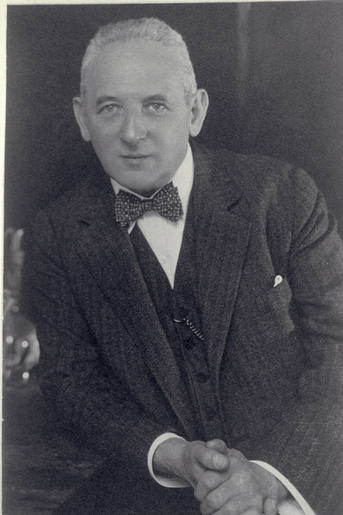
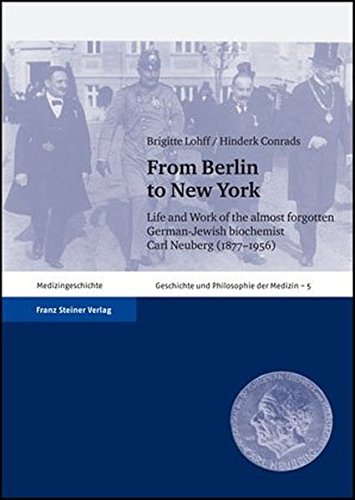
Brigitte Lohff and Hinderk Conrads.From Berlin to New York : Life and Work of the Almost Forgotten German-Jewish Biochemist Carl Neuberg (1877-1956). Stuttgart: F. Steiner, 2007. LBI Library Collection, st 7963
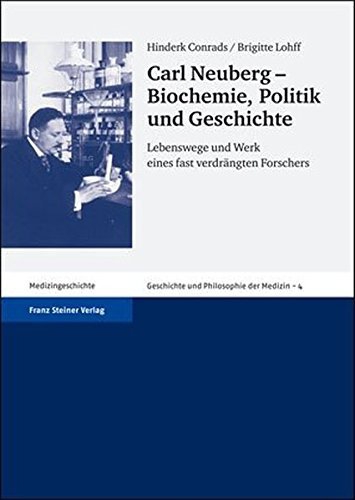
Hinderk Conrads and Brigitte Lohff. Carl Neuberg: Biochemie, Politik und Geschichte ; Lebenswege und Werk eines fast verdrängten Forschers. Stuttgart: F. Steiner, 2006. LBI Library Collection, st 6690
In 2013, the Central and Regional Library of Berlin (Zentral- und Landesbibliothek Berlin, ZLB) restituted 40 volumes from biochemist Prof. Carl Neuberg’s former library as part of their search for books looted and expropriated by Nazis among their collections. The books were returned to the granddaughters of Carl Neuberg who decided to transfer them to the library of the Leo Baeck Institute in New York.
Prof. Dr. Carl Neuberg (July 29, 1877, Hanover - May 30, 1956, New York) was one of the leading biochemists of his time and was nominated 25 times for the Nobel Prize. Prof. Carl Neuberg belonged to a circle of internationally renowned researchers who put the subject of biochemistry at the center of progress. As director of the Kaiser Wilhelm Institute of Biochemistry in Berlin, he was a driving force for establishing biochemistry as an independent discipline. The Biochemische Zeitschrift (=Journal of Biochemistry), which he had founded in 1906, also contributed significantly to this effort. During World War I, Neuberg used his scientific expertise to support the war effort. He found a chemical procedure for an isolated glycerol substitute, which was produced on an industrial level for brake fluids and for the production of explosives. In the scientific community, Prof. Carl Neuberg was known for his research in the elucidation of the chemical reactions and intermediate products of alcoholic fermentation.
Prof. Carl Neuberg taught at the Friedrich Wilhelm University in Berlin and headed the Department of Biochemistry at the Kaiser Wilhelm Institute for Experimental Therapy from 1913 until 1934, which became a separate institute in 1925. Facing growing anti-Semitism and changes in legislation after the Nazis came to power, Neuberg was ultimately forced to resign after being denounced in 1934. His successor at the Kaiser Wilhelm Institute for Biochemistry, Adolf Butenandt (Nobel Prize, 1939), "requested that Professor Neuberg should have no connection to the Institute in [the] future” (Brigitte Lohff and Hinderk Conrads. From Berlin to New York : Life and Work of the Almost Forgotten German-Jewish Biochemist Carl Neuberg (1877-1956), Stuttgart, 2007, p. 124). In August 1939, Neuberg fled to the Netherlands and emigrated via France, Palestine, Iran, Iraq, India and other transit stations to the United States. When Neuberg arrived in New York in the spring of 1941, he was already sixty-four years old. He found an unpaid temporary research position at New York University. In 1949, he became a visiting professor at the Polytechnic Institute of Brooklyn, where he stayed for the rest of his life. He earned a modest living, mainly as an industrial consultant.
The restituted books from Prof. Carl Neuberg’s former library are mainly scientific literature featuring provenance marks such as autographs, name- and address stamps, annotations or dedications. When Prof. Neuberg fled to the United States in 1939, his abandoned property was packed in crates and stored, including his library. A part of it was presumably lost as a result of war damage; another part of Neuberg’s possessions was looted by the Gestapo in 1941 and sold in 1944 at a public auction. However, it is unclear when exactly the books entered into the possession of the former Berliner Stadtbibliothek, a collection which became part of the Central and Regional Library of Berlin in 1995. What is certain is that many of the books appear in accession journals of 1945-1946, listed as “gifts.” The researchers from the then NS-Raubgutforschung Division of the ZLB, now the Provenance Research Department at the ZLB, assume that Neuberg’s books entered the holdings of the Berliner Stadtbibliothek in 1943, as part of an acquisition of 40,000 books from the Berliner Pfandleihanstalt (Municipal Pawn Shop) which were looted from deported Jews, although the evidence is insufficient.